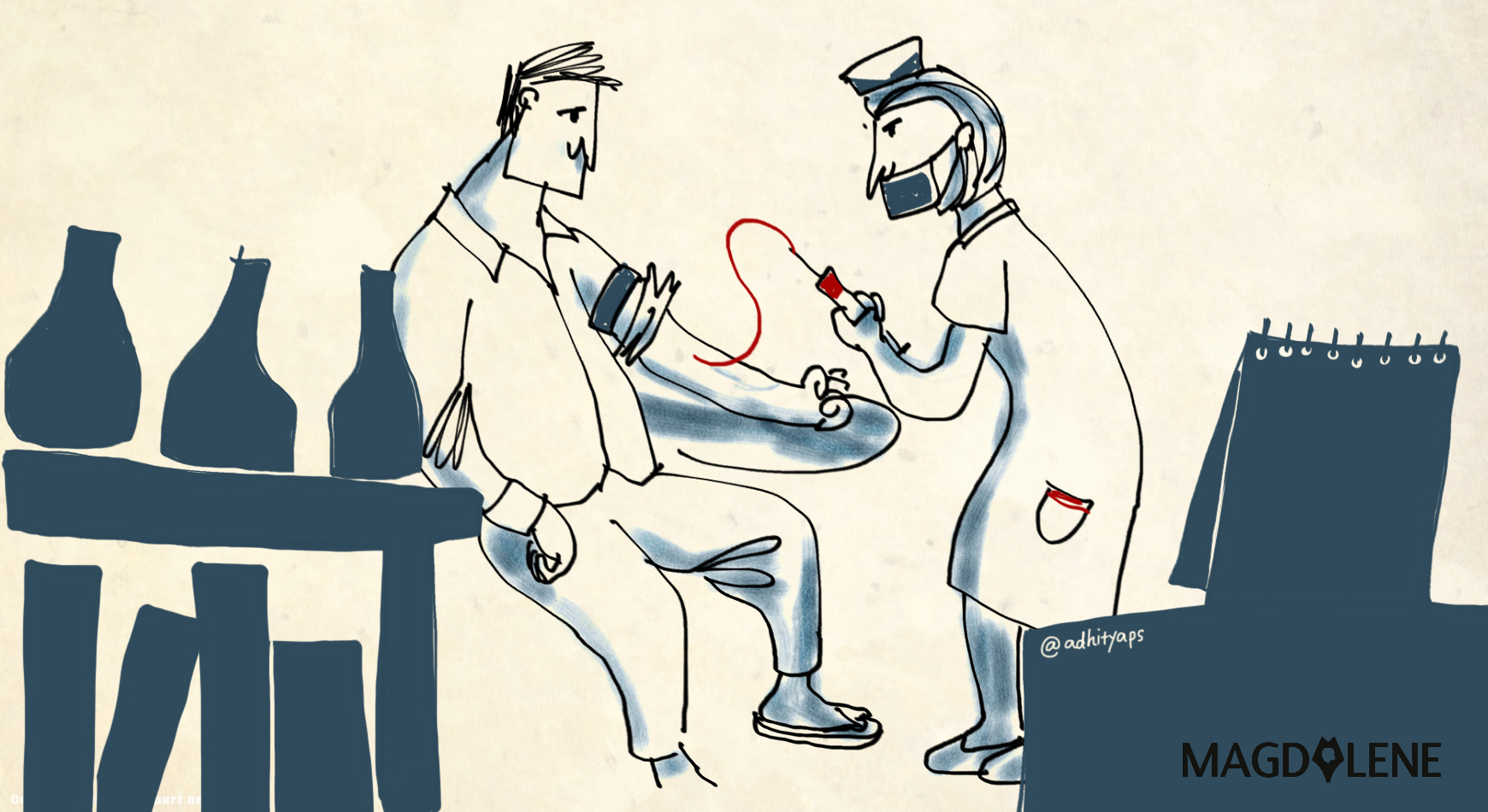Once, in Jakarta, I decided to get an HIV test, so I went to a hospital that was closest to my house and requested the test. I had not expected the responses that followed.
First the nurses overreacted, asking me and this and that questions. After a frustrating 30 minutes with the nurses, a doctor finally showed up. He was no more helpful than they were.
“Why do you want to get tested for HIV?” he asked. “Are you sexually active? Or have you got a tattoo?”
I stared at him in disbelief: “I think your question should not be asked in front of people in such a public space like this.” After those rude questions I ditched my plan and went home and cried.
I recalled this unpleasant memory as I recently saw a campaign by a development agency to educate social media users on HIV/AIDS, asking people (most likely youth) to be brave and get tested. This is a good move. The more people know about HIV/AIDS, the less stigma there will be: more knowledge equals less stigma.
I was one of the informed youths who wanted to protect myself, so I went to the hospital for the testing. But in the hospital, in addition to the intrusive questions, I became the recipient of unfriendly gestures, with the nurses whispering to one another. By questioning my motives and reasons to get tested, I felt as if they were shaming me.
There is obviously a gap between public awareness and that of the health facilities’ workers. As a member of the public, I was aware of the need for an HIV testing and to help lessen the stigma of being tested. Ironically, the nurses and doctors who were part of the testing facility did nothing but perpetuating the stigma.
After that traumatic experience I always say don't go to hospital to get tested for HIV. Instead, go to clinics like Angsa Merah because they have better services. However, hospitals are the first facilities people have in mind when it comes to health issues. Indonesians believe in doctors a lot. What doctors say is important to a lot of people, so we cannot dismiss the roles of hospitals and health workers in providing services like the HIV testing. But there needs to be more efforts in raising the awareness of health workers in Indonesia to help reduce the stigma of being tested.
Bad experience when getting tested can boomerang on the awareness campaign, with people feeling ashamed and traumatized. An awareness campaign may work to inspire young people to go to the hospital and check themselves. But as long as hospital workers still operate with judgmental attitude and treat people seeking the testing as if what they do is shameful, the problem will never end.
Rika Novayanti is convinced that Jakarta becomes a romantic place after the sun has gone down. She rambles on rikanova.com, and @rikanova.





-thumb.jpg)


Comments